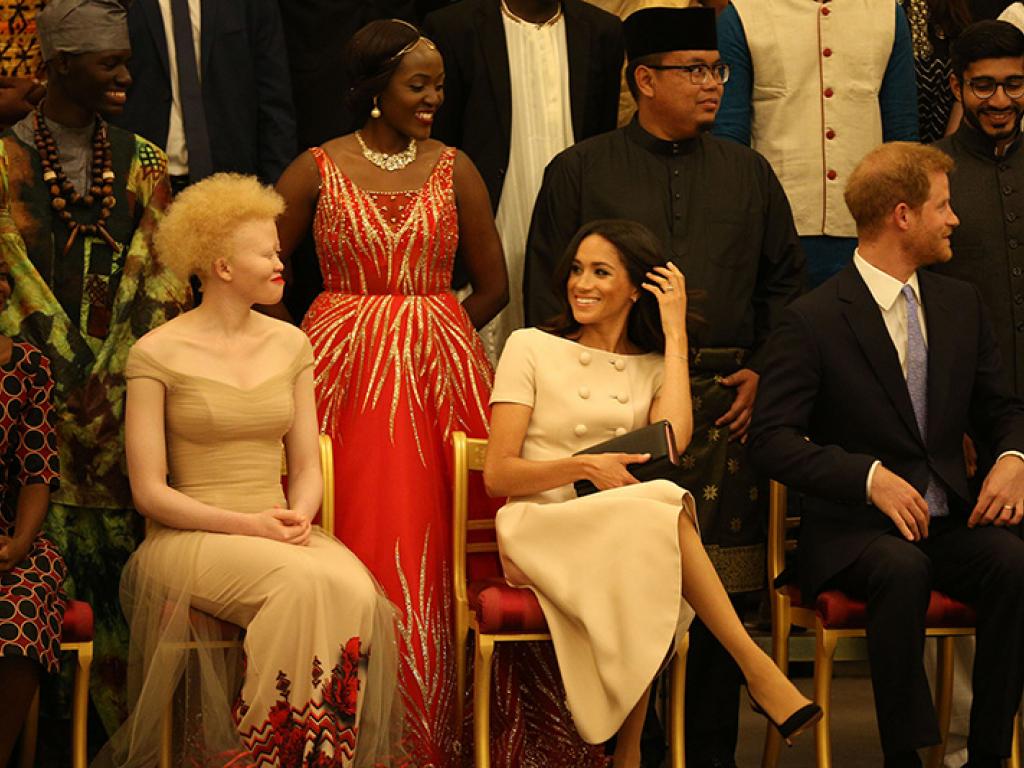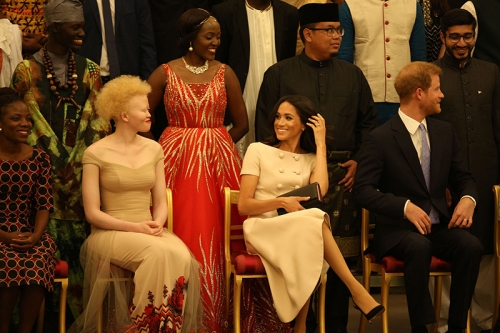Queen’s Young Leader Awards for Science student


Queen’s Young Leader awardee Siposetu Mbuli (left) exchanges a word with the Duchess of Sussex, Meghan Markle, at the Buckingham Palace awards ceremony. Mbuli’s dress for the ceremony reflected her South African heritage, Hendrik Vermeulen’s design featuring a protea and traditional Xhosa patterns.
South Africa’s sole Queen’s Young Leader Awards winners for 2018 are UCT students Siposetu Mbuli and Thamsanqa Hoza, who visited Buckingham Palace recently to receive their honours from Her Majesty the Queen.
The programme, instituted in 2014 and now in its final year, celebrates “exceptional young people” aged between 18 and 29 from across the Commonwealth who are working towards lasting change in their communities. It has formed a unique community of 240 influential change-makers who represent 53 Commonwealth countries.
Hoza was honoured for his work with young entrepreneurs and innovators, and Mbuli for her campaign to end the stigma surrounding albinism.
Sharing albinism experiences
Mbuli, a final-year BSc (chemistry and oceanography) student with albinism, was honoured for her work with people living with albinism, through her foundation Love‚ This Skin.
The idea was born in 2016 when she and a friend were discussing their experiences growing up with albinism and what they felt should change. Their answer was to found Love, This Skin, an organisation that helps people with albinism see beyond the negative perceptions and the limitations placed on them – or that they place on themselves.
The foundation empowers, educates and supports people with albinism, as well as their families and communities, by hosting workshops, community awareness drives and by highlighting positive messages about albinism, said Mbuli.
“We’re showing people with albinism that their voices, stories and presence matters … That their experiences matter and they shouldn’t be afraid to share them.”
A major challenge is countering the negative perceptions of albinism in society. One of her key messages is that albinism affects everyone differently.
“The nuances of people’s experiences differ. People with albinism come from different backgrounds.”
There were many memorable moments at the awards ceremony, she said.
“Celebrating and acknowledging the great work of young people, meeting amazing leaders who encouraged us to continue our work.”
Quoted in The Herald (Mbuli is from the Eastern Cape), she said: “The queen was very attentive to each of our stories. She was asking about which part of South Africa I am [from] – and the work we have done. She encouraged us to continue our work ...”
As part of her award‚ Mbuli will embark on a year-long correspondence course at the University of Cambridge, aimed at helping her develop her foundation.
Story: Helen Swinger
Photo: British Arts Ceremonial Arts Ltd
